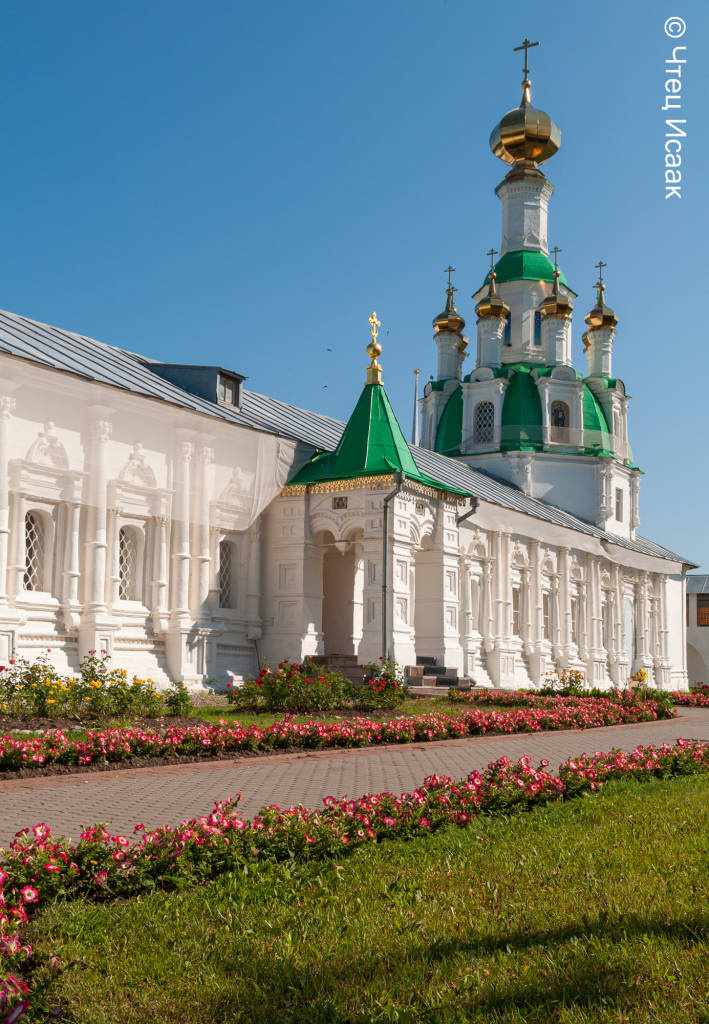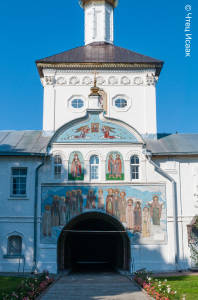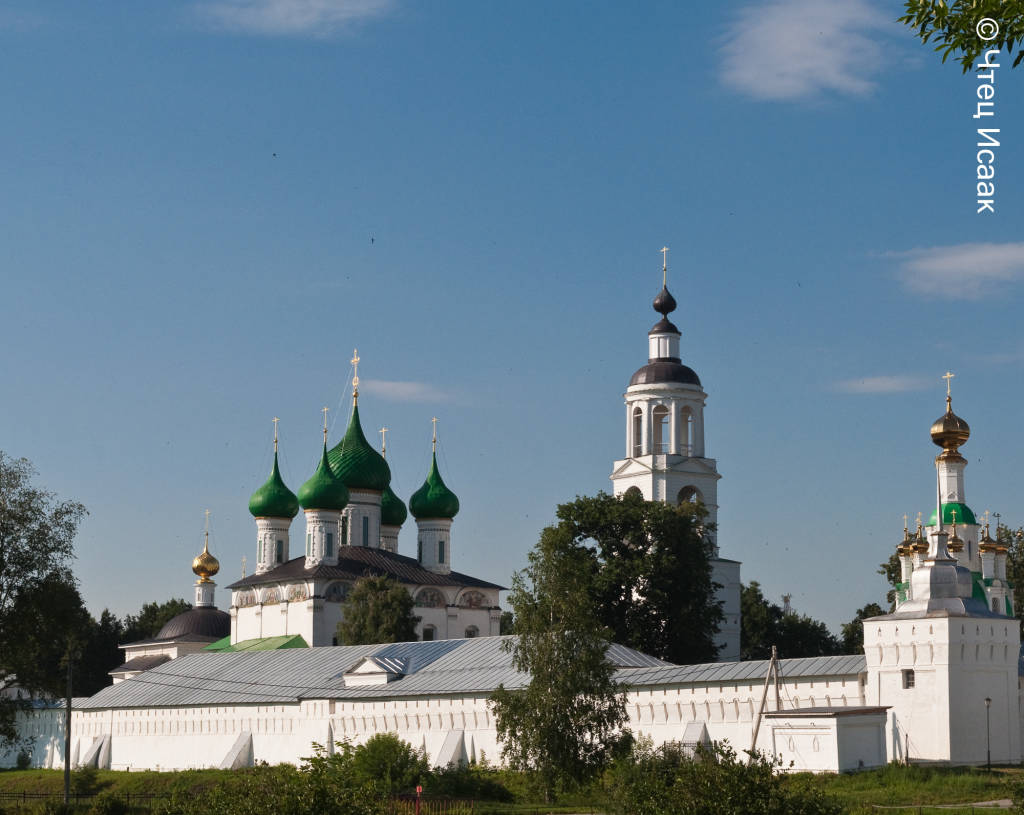I have just returned from my yearly ‘wellness checkup’ at my local GP (ie doctor). I didn’t actually talk to a doctor neither did I undergo a physical exam, instead, the checkup consisted of a nurse administering a questionnaire which comprised questions about general life habits – eating well, sleeping, medications etc – and also questions about ‘mental health’ – depression, is life worth living, etc. Invariably absent was any reference to spiritual well being, in my opinion the most important aspect of our lives.
So, if there were questions about spiritual life in Christ, what form might these take? Before I approach this topic and perhaps enumerate a list of queries I would like to digress to the following article I read recently on the very excellent Orthodox Christianity site entitled PUKHTITSA DORMITION CONVENT: AN UNINTERRUPTED TRADITION OF FEMALE MONASTICISM from August 2017. Correspondent Ekaterina Orlova interviews Abbess Filareta of the monastery with an introduction which includes:
The Pukhtitsa Dormition Convent is one of the most beloved monasteries of the Russian Orthodox Church, bearing the special distinction of having never been closed during the godless Soviet years.
“It is largely thanks to the labors of Schema-Abbess Barbara [reposed in 2011] that Pukhtitsa Monastery became a true outpost of Orthodoxy in Estonia.”
How does a monastery that was never closed in the Soviet years and that has raised up abbesses for many convents in various dioceses of the Russian Orthodox Church live today?
Tell us, please, a bit about how you became a nun. Who did you learn monasticism from; who was your example in the monastic life?
My path to monasticism wasn’t anything special or unusual. During my summer breaks from school, I would visit Pukhtitsa Monastery with the blessing of my spiritual father, working together with the sisters in the “hot” time of haymaking, and I saw the monastic life with my own eyes and was so imbued with the blessed atmosphere, the prayer life, the spiritual work of obediences, the feeling of a united monastic life, that by the end of the summer I didn’t want to leave. When it came time to leave, I found no place for myself anywhere, and as soon as I graduated and received my diploma, I immediately came to the monastery for permanent residence, and any other kind of life was simply impossible for me. I attribute all of this to the work of grace —- only Divine grace can wrest a man from his environment and lead him to monasticism.
Observations
The abbess asserts that her path to monasticism was not special or unusual; perhaps not, but I can’t help thinking that the experience of Divine grace that drove her to embrace the monastic life –”the blessed atmosphere, the prayer life, the spiritual work of obediences, the feeling of a united monastic life” – was indeed an unusual gift from God. “When it came time to leave, I found no place for myself anywhere”, “any other kind of life was simply impossible for me” – what a blessing to have this conviction so strongly. And surely she is wholly right in asserting that “only Divine grace can wrest a man from his environment and lead him to monasticism”.

How would you advise a girl desiring monasticism to choose a monastery? What is necessary to consider, in your view (perhaps climate, obediences, the spirit of the monastery), and what must you know about yourself and about the monastery, having decided to leave the world?
There is only one case in which someone can become a monastic: If there is a calling from God. It is expressed in a strong, irresistible desire for the monastic life. All that was dear and sweet for your heart in the world becomes unbearably oppressive. The sisters have said, “All is well; you have your mama, papa, brother, and sister at home; everyone loves you; but it is impossible for you to be there, just as you choke without air.”
As for choosing a monastery, I think the heart will tell you, it won’t deceive you, and you will feel that precisely here is your place. Then you should consult about it and receive a blessing from your spiritual father.

A “calling from God”, “expressed in a strong, irresistible desire for the monastic life” – how wonderfully put. And choosing a monastery – “I think the heart will tell you, it won’t deceive you, and you will feel that precisely here is your place”; yes indeed, like choosing a marriage partner for life. And of course the importance of obtaining a blessing from one’s spiritual father.
But there is more:
For those desiring to enter a monastery, it’s important to know what they are searching for when they go to a monastery, and what they expect when they turn to Christ. Then, they either go to find the wholeness and fullness of the inner life, or for Christ to resolve this or that theoretical question for them which concerned them. It’s very important. Will you go to Christ as to your Deliverer from spiritual sorrow, from weakness of will, which each of us bears within ourselves, that the Lord might give us strength to labor, or as to a philosopher for resolving our doubts? It’s necessary to understand, because in this or that case you receive different results. One of the greats said that the realm of doubt is just as endless as the realm of thoughts. Now it is one of the reasons to advise those desiring to enter a monastery again and again to test themselves and make sure that the path of your spiritual life is going not from theory to life, but from life to theory, not from doubts to Christ, but from Christ to the resolution of doubts, not from the mind to the heart, but from the heart to the mind.
The logic of those desiring it is strange: “I love the Lord and I want to go to a monastery, but I’m afraid and I have doubts!” This cannot be. If you love Christ, then you believe firmly, and if you believe, then you trust, and if it is so, then there can be no doubts!
Here we have a nub. If, for “monastery” we substitute “seminary” or “diaconate course” or some other professional qualification with an apparent spiritual element associated with it, what do we arrive at? What are people searching for by entering upon an academic course of study and what do they expect if they turn to Christ? Are we going to find “wholeness and fullness of inner life”? Are we even going to discover a resolution of our theological questions through Christ? Can we expect from the academy resolution of doubts or is it more likely that we’ll end up burdened with more and deeper doubts? “The realm of doubt is just as endless as the realm of thoughts”. Can we ever find spiritual health in the academy devoted to the inflation of the ego — publish, lecture, advise etc. To gain spiritual health we need to acknowledge our weaknesses, we need to admit our inconstancy of faith, we need to call upon Christ our Lord as did blind Bartimaeus regardless of obstacles, “Jesus, son of David, have mercy on me”. As the abbess counsels, in order to grasp hold of spiritual health we need to ensure that our path of spiritual life proceeds from [faith in] Christ to the resolution of doubts, from the heart to the mind. And with firm belief that our Lord and Saviour Jesus Christ will provide the right spiritual path for us we should cry out to the Lord with persistence, patience and heartfelt sincerity, “Lord Jesus Christ, son of God, have mercy on me a sinner” until the end of our days on earth.
It is a good thing to speak concerning the things of God for God’s sake, but it is better for man to make himself pure for God.
Gregory the Theologian, Oration 3, On Flight, #12
Love uncouthness of speech joined with knowledge from inner experience more than to gush forth rivers of instruction from the keenness of your intellect and from a deposit of hearsay and writings of ink.
St Isaac the Syrian, Ascetical Homilies, Homily four [32]
